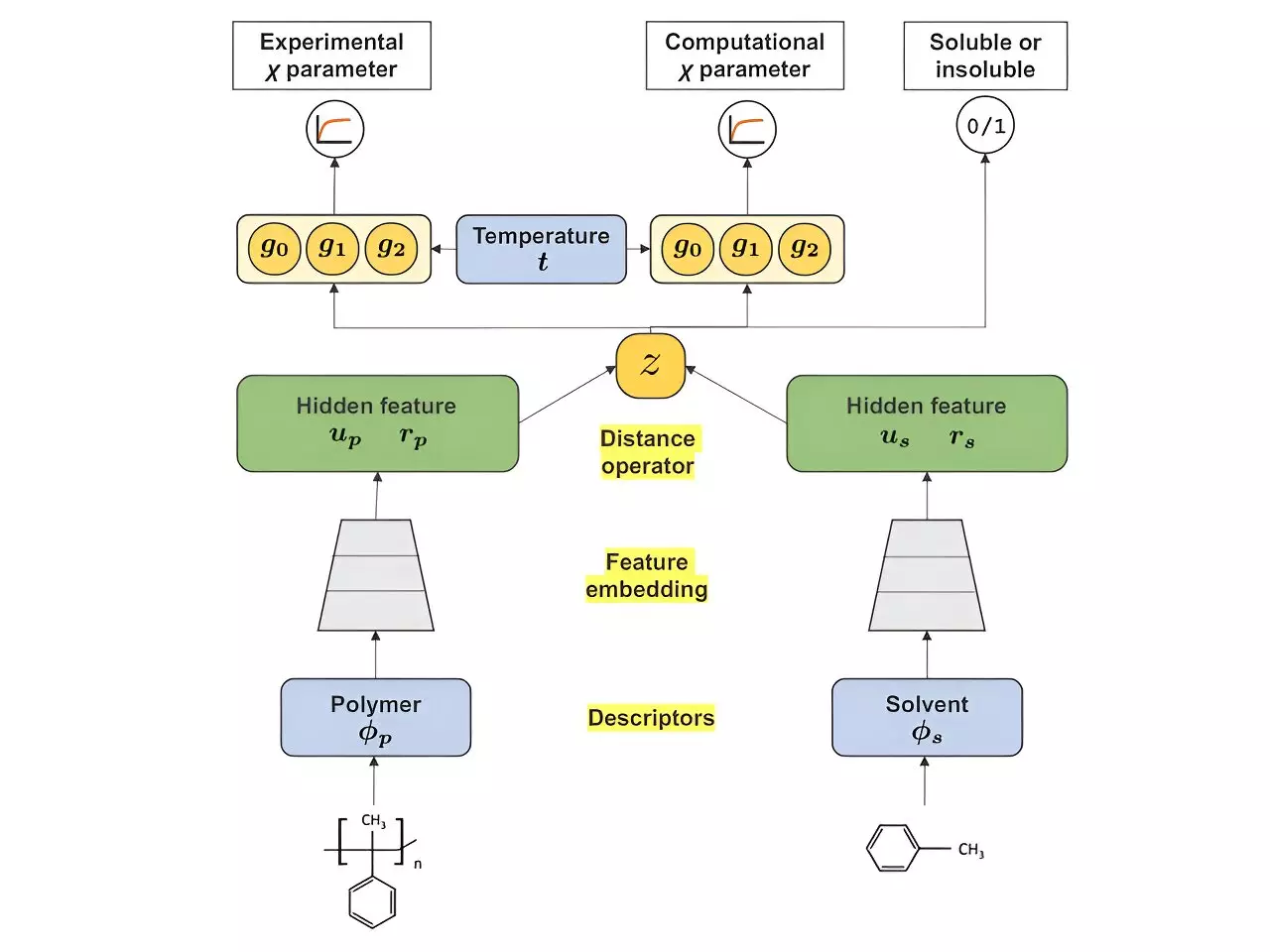Dissolving polymers with organic solvents is a crucial step in the research and development of polymeric materials. It plays a vital role in polymer synthesis, refining, painting, and coating. In light of the pressing need to reduce carbon emissions from materials development processes, plastic waste recycling has become increasingly imperative. However, recycling plastics is not as simple as it seems. Many plastics and plastic-like materials require specific solvents to dissolve effectively and become recyclable.
Fortunately, scientists have made groundbreaking progress in this field by utilizing Mitsubishi Chemical Group’s (MCG) databank of quantum chemistry calculations. They have developed a novel machine learning system capable of determining the miscibility of any given polymer with its solvent candidates. This system, known as the χ (chi) parameters, overcomes the limitations posed by the scarcity of experimental data on polymer-solvent miscibility. By integrating massive amounts of data generated from computer experiments using high-throughput quantum chemistry calculations, researchers have constructed a model with exceptional accuracy. Their findings were recently published in the journal Macromolecules.
The key breakthrough lies in the multitask learning framework employed by the researchers. By combining two distinct datasets from quantum chemistry calculations and real experiments, they successfully created a model capable of predicting the miscibility of any polymer-solvent system with utmost precision. This powerful model has far-reaching implications, as it allows for the selection and design of solvent molecules for the selective separation of different types of plastics in plastic waste. These specially designed solvents, known as “miscibilizers,” can also be used to create high-performance polymer blends.
According to Ryo Yoshida, an author and researcher of the study, the development of miscibilizers for various types of polymers is crucial for improving the recycling rates of waste plastics. As the world progresses toward decarbonized societies, the demand for technological innovations in recycling waste plastic resources is rapidly growing. The predictive model developed by these researchers enables the calculation of χ parameters approximately 40 times faster than conventional quantum chemistry calculations. This incredible speed allows for the rapid screening of millions of candidate solvent molecules.
So far, the model has proven to be highly accurate in identifying the optimal conditions for creating a homogeneous mixture of polymer and solvent suitable for recycling. By removing much of the guesswork and trial and error from the process, the model has significantly advanced the field of polymer recycling. However, like any emerging technology, there is always room for improvement and refinement before it becomes suitable for large-scale implementation.
Yoshida states that the researchers are dedicated to further enhancing and expanding machine learning techniques in materials informatics. As part of their commitment to open innovation and open science, they have made portions of the developed source code and data available to the public. By sharing this information, they hope to increase the data set available to the model. This expansion of data will provide the model with a deeper understanding of the dependence of a polymer’s miscibility on its molecular weight and other compositional features.
The Power of Crowd-Sourcing and Open Innovation
Through open innovation and crowd-sourcing data, a vast amount of information can be acquired in a relatively short period of time. This collaborative approach is invaluable in refining the model and ensuring its accuracy and effectiveness.
The ability to predict and understand polymer miscibility represents a significant innovation in materials development. As our society continues to move away from plastic-based materials, this advancement will play a pivotal role in the intelligent recycling of waste plastics. By harnessing the power of machine learning and quantum chemistry calculations, scientists are revolutionizing the way we approach polymer recycling. The future looks promising as we strive for a more sustainable and eco-friendly world.


Leave a Reply